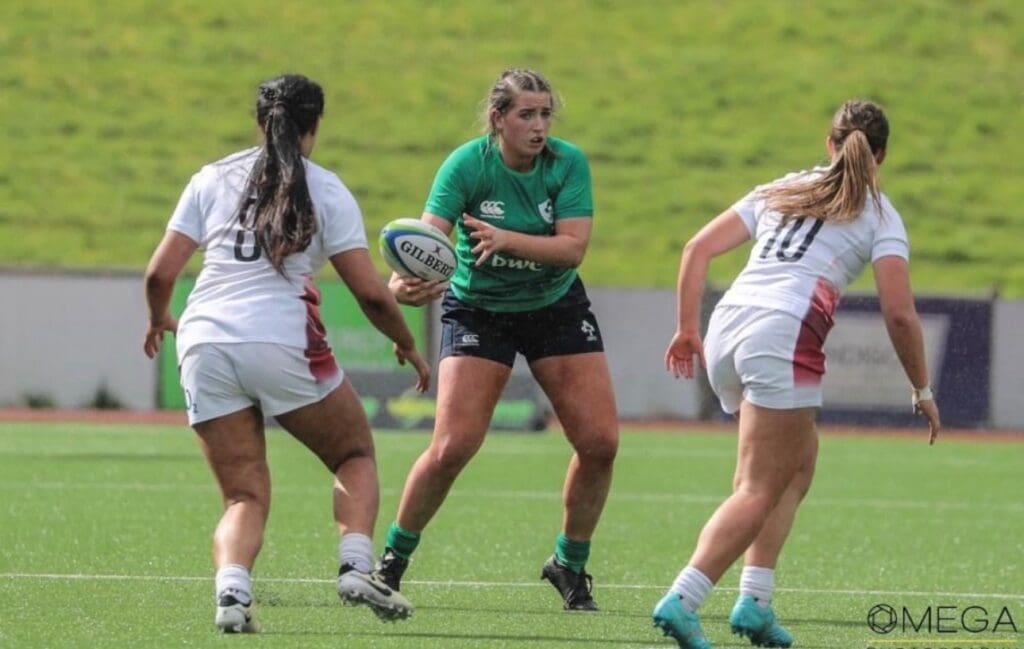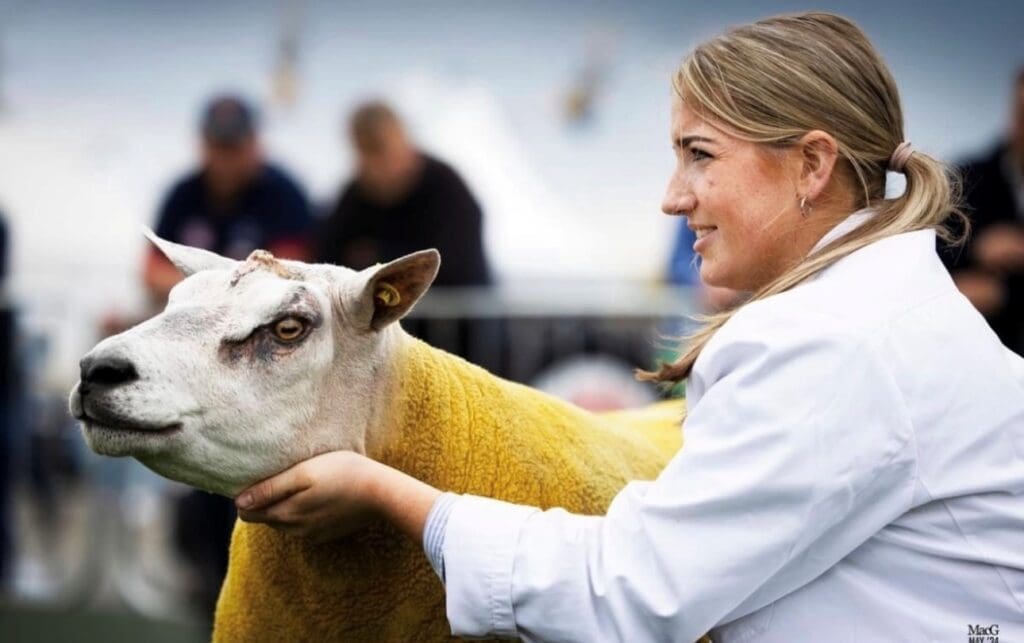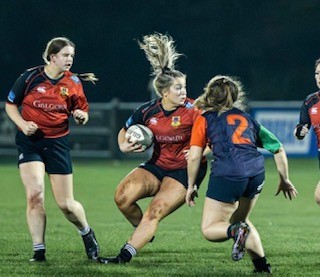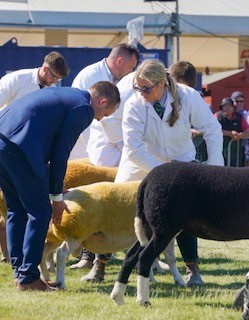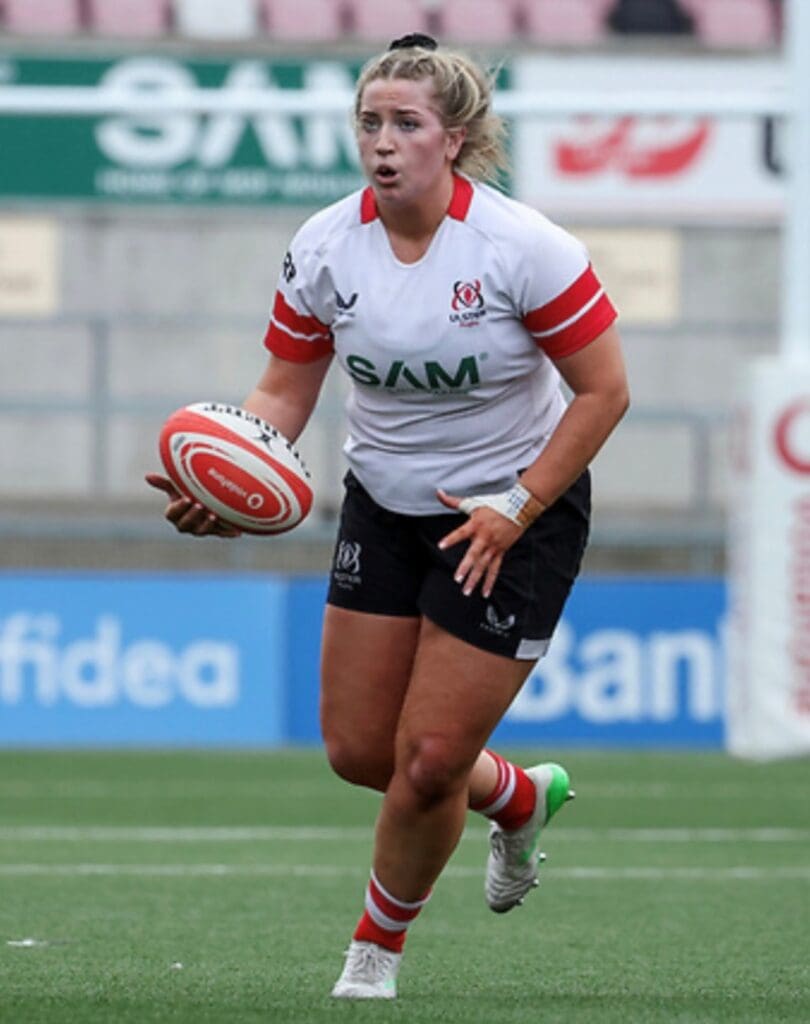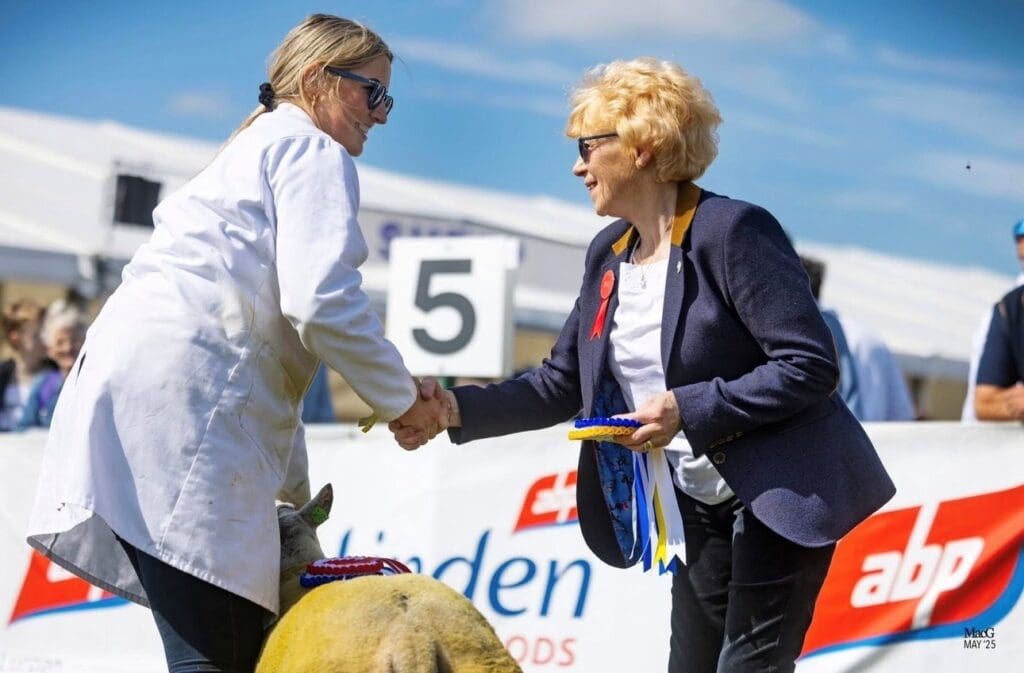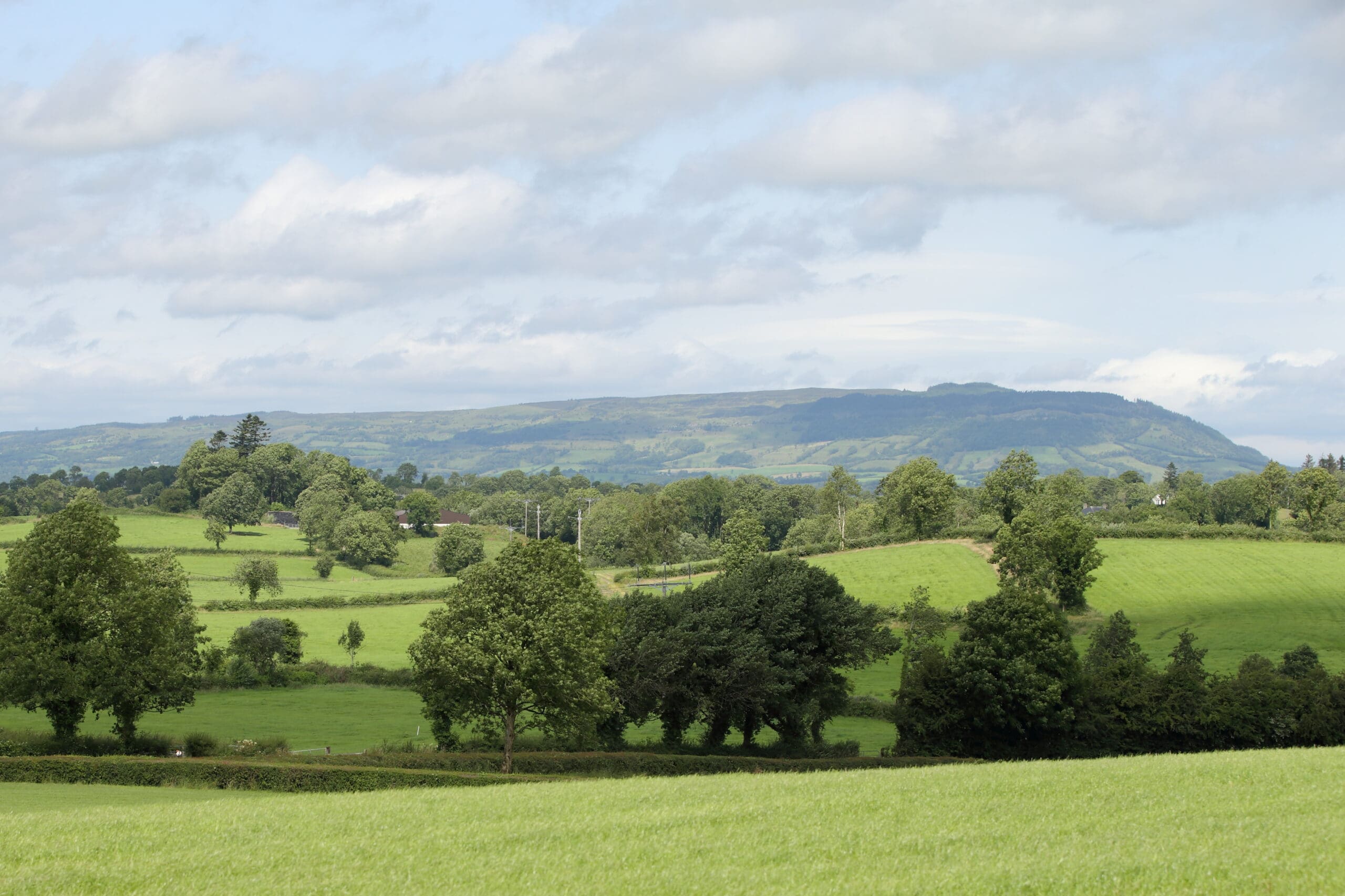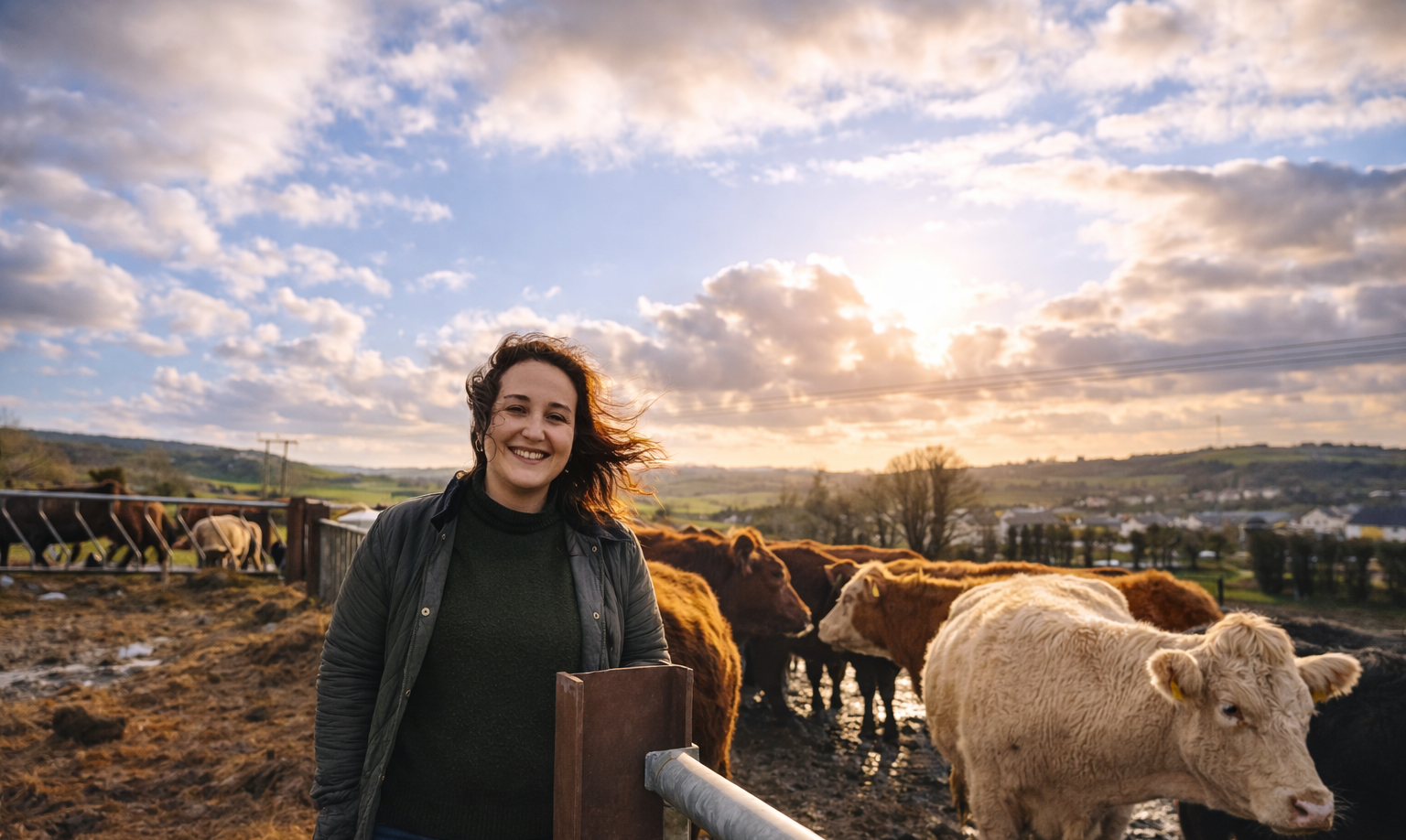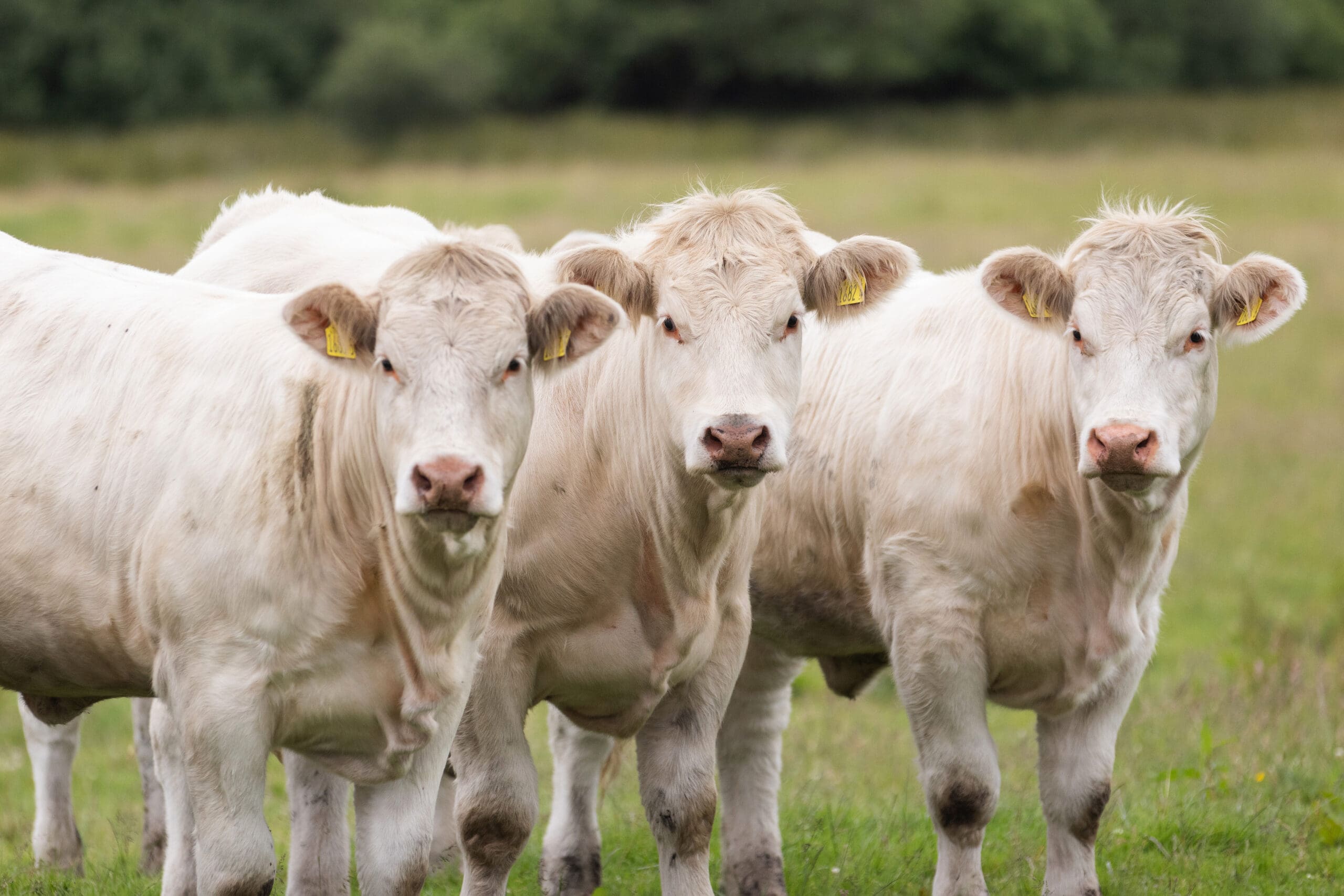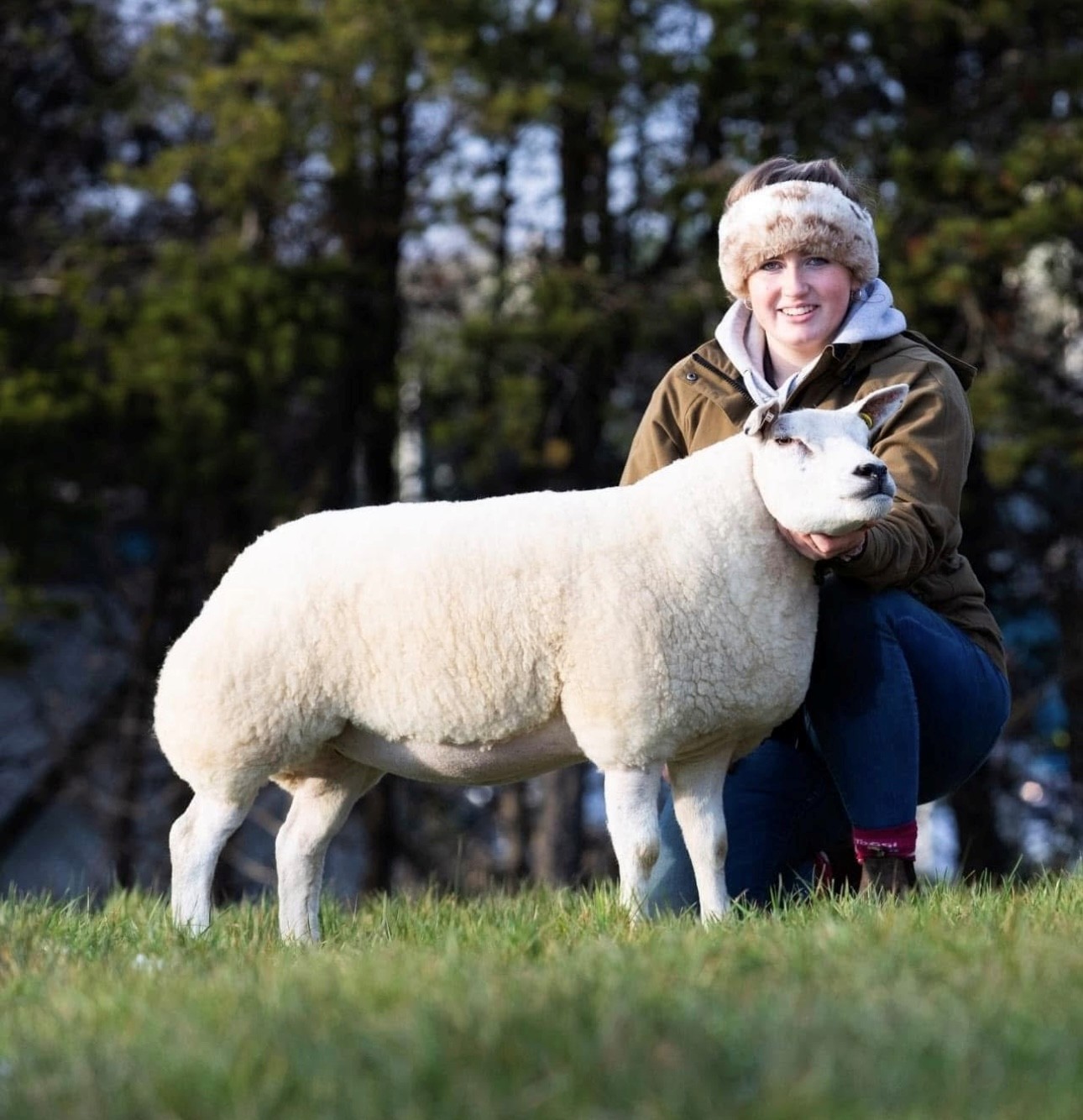
Place I call home?
I was born and raised in the townland of Artnagullion near Kells, which is just outside Ballymena.
Occupation?
I currently work full time for the Ballyclare NFU as a customer services advisor.
Farming commodity?
At home we have a flock of Beltex, Texel, Charollais, Dutch Spotted and Blue Texel sheep, we also breed half-bred rams which we sell all over the UK. Alongside a small herd of Beef Shorthorn cattle.
How did you become involved in farming?
I grew up on my family’s pedigree beef and sheep farm, where we specialise in breeding and selling pedigree and crossbred rams. As well as breeding and selling pedigree Shorthorn bulls.
Earliest farming memory?
It’s hard to remember my first exact farming memory, but I was exposed to the world of showing at a very young age as I attended my first ever Balmoral show at just four weeks old! And for as long as I can remember we have attended the summer shows every year with not only a team of sheep, but a team of people too! Other memories that I can remember well are going on the rounds every morning with my aunt listening to country roads on repeat or helping fill buckets of meal for the wee pens and feeding lambs at lambing time.
What personal characteristics did you develop from agriculture?
Agriculture has given me many characteristics such as responsibility, determination to get a job done, teamwork, communication and patience. Although if anyone had to work with my family, they would soon realise how your patience can be tested.
Life lesson you learnt from farming
I think a good way to describe a life lesson I’ve learnt from farming is ‘Rome wasn’t built in a day’. In farming things don’t happen overnight, there is so much ‘preplanning’ and investment that must happen before you get the outcome. Especially with the current situations there are so many challenges you have to face before you get living lambs on the ground, let alone the challenges of getting them to a sale in England or Scotland.
What do you enjoy most about the farming lifestyle?
There are so many aspects I enjoy about the farming lifestyle, it’s hard to just choose one. Whether it’s watching lambs being born, seeing them thrive and do successfully at shows, and then eventually making it to the sale ring or being retained at home as breeding stock, it’s rewarding to watch. From the showing and selling side of things, this is the highlight of our farming year, there’s a real pride in presenting the sheep we’ve bred and seeing the reward at the end. Another aspect to this is community, it’s incredibly sociable! Shows and sales bring likeminded people together who understand and share the same passion.
Describe a farmer in three words:
Resilient, diligent and dedicated.
What would you like the public to know about NI sheep farming?
I would like the Northern Ireland public to know that sheep farming is a way of life, it’s 24/7, 365 days a year. It’s early mornings, late nights and total commitment. Farmers take immense pride in the care and wellbeing of their animals. Healthy, happy sheep are our top priority, from feeding to breeding. Northern Ireland also produces some of the best pedigree and commercial sheep in the world. The standard of breeding showing and flock management here is outstanding, and it’s something everyone should be proud of. A big thing I think that the public forget is how vital sheep farming is to our economy and rural communities. Sheep farming supports thousands of jobs and keeps rural life thriving, from vets and feed suppliers to auctioneers and AI/embryo technicians, shearers to photographers. From farm to fork, traceability and quality assurance is everything. Buying local lamb supports farmers who genuinely care about what ends up on your plate.
What have been the benefits of consuming NI FQAS beef and lamb with your sporting career?
I have been lucky enough to play for Ireland U18s and Ulster Rugby’s senior women’s team, although a lot of my performance is from practice and training, an important part of it is being able to include Northern Ireland Farm Quality Assured beef and lamb in my diet, in order to intake the correct amount of protein every day. It’s also extremely important after intense training and matches as I need the best protein possible for repairing my muscles and recovery. As an athlete knowing where your food comes from gives me the reassurance of the origin and quality of the meat I eat – I just need to improve on the fruit and veg aspect.
If you could give farmers / farming families one piece of advice, what would be?
Keep doing what you are doing. Keep producing and bringing out quality stock to shows and sales, so that other people can see what us farmers in Northern Ireland can produce.
What would you say to others who are considering a career in the agri-industry?
I would encourage young people to take the agri route, whether it’s in farm work, machinery, breeding or the food industry, every career is vital in order for Northern Ireland to continue to provide high quality stock and products. It’s one of the few industries where your work truly matters – you’re feeding people, supporting local communities and working for the next generation. It’s challenging, yes, but it’s also full of purpose and pride. As someone who relies on quality food to perform, I see the impact farmers make every single day.
What are your hopes for the future of NIs agri industry?
I hope that agriculture remains the most important industry in Northern Ireland and that the public will start to realise the superior products we produce here, and that they look for NI produce on their food labels. I also hope we have more government officials who support agriculture rather than oppose it.


